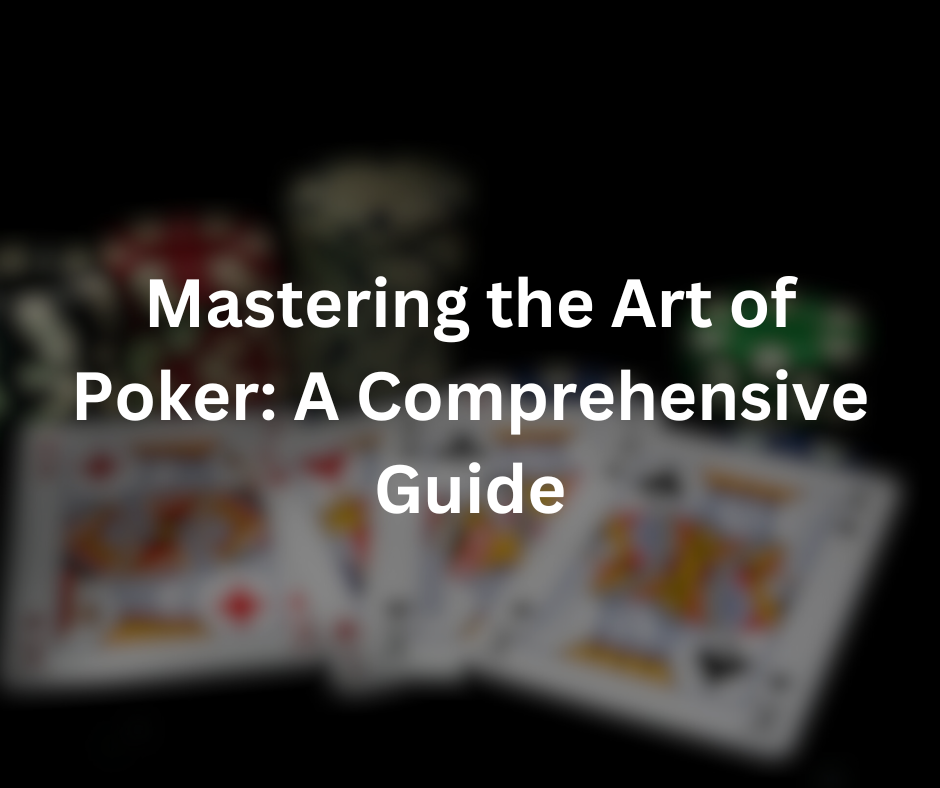
Poker, a strategic and engaging card game, is played with a standard 52-card deck, including cards ranked from two to ten and face cards Jack, Queen, King, and Ace. The Ace is unique as it can serve as the highest or lowest card, adding a layer of strategic depth to the game.
Card Rankings
In poker, the cards rank from high to low as follows: Ace (high or low), King, Queen, Jack, 10, 9, 8, 7, 6, 5, 4, 3, 2. This ranking system is fundamental as it helps determine the winner in games by comparing players’ hands.
Betting Structure
Poker betting can vary but typically involves a combination of blinds and/or antes. Blinds are compulsory bets from two players that seed the pot, while antes, smaller bets from all participants, are common in tournament stages. Betting styles in poker include fixed-limit, no-limit, and pot-limit, each imposing different betting restrictions.
Stages of Play Understanding poker’s stages is crucial:
- Pre-flop: Players receive their hole cards and decide whether to match the big blind, raise, or fold.
- Flop: Three community cards are dealt, sparking another betting round.
- Turn: A fourth community card is added, followed by more betting.
- River: The final community card is dealt, leading to the last betting round and the showdown.
Winning Hands The objective in most poker variants is to construct the best five-card hand, with rankings from highest to lowest: Royal Flush, Straight Flush, Four of a Kind, Full House, Flush, Straight, Three of a Kind, Two Pair, One Pair, High Card.
Game Variations
- Texas Hold’em: The most popular form, where players combine two private cards with five community cards to make the best hand.
- Omaha: Similar to Texas Hold’em but with four hole cards, of which two must be used.
- Seven-Card Stud: A traditional form without community cards, each player receives a mix of face-down and face-up cards.
Betting Strategies A sound understanding of odds and outs is essential for informed betting decisions. Outs are cards that can improve a hand to a potential winner, and understanding odds involves calculating the likelihood of these cards appearing. Bluffing and reading opponents are also pivotal, as they involve gauging opponents’ hands and manipulating gameplay.
Bankroll Management Effective poker playing necessitates strict bankroll management, selecting stakes that match one’s financial comfort and managing fluctuations responsibly.
Advanced Betting Techniques Advanced players benefit from understanding pot odds, the concept of fold equity, and multi-street planning, which involves anticipating future rounds and adjusting bets accordingly.
Poker Etiquette Maintaining proper etiquette ensures a respectful and enjoyable game environment. This includes managing emotions, adhering to turn orders, and respecting both dealers and players.
Organizing Poker Games Setting up a successful home game involves choosing the right game type, ensuring adequate equipment, and understanding legal gambling guidelines.
Educational Resources Resources such as books, online tutorials, and training sites offer valuable insights and strategies for all skill levels.
The Future of Poker Technological advancements and global trends continue to shape poker, making it accessible and popular worldwide. Online platforms enhance this growth by offering innovative ways to play and connect with other enthusiasts.
